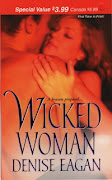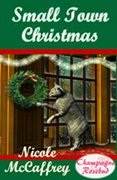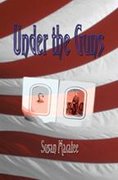
Why do you write historical?
In Kindergarten, I’d gather dozens of students about to tell them scary Victorian ghost stories. I’d learned already to use cliff-hanger endings and so the students would come back time and again to hear the rest of the story.
Nowadays, I love to unearth the past, presenting it in fresh form to readers.
What part of the Victorian era/setting do you write in?
1865 to 1866, and on into the Edwardian Era. Post Civil War era, mostly. Events of that timeframe tug at my heartstrings.
I focus mostly on lesser known royalty and nobility, and try to give the reader a view of the historical happenings through the experiences of the fictionalized historical persons and my fictional main characters who play off of them.
The reason I’m writing inspirational style is because religions and people’s faith were extremely important in their lives. Religious charities began dominating social scenes, for example, with balls and even daily involvements by patrons. History books tend to leave out such facts.
I’ve been most curious about the Mediterranean areas and Middle Europe during the Victorian era. But I research Queen Victoria and her lifestyle quite a bit because her influence was global. France’s Royal Court also influenced very many lives even at a distance as it was a measuring stick in everything from fashion to protocol.
What is it about the era that most intrigues you?
There are several things that stand out.
Lifestyles of the women, particularly of the nobility and aristocracy as I've mentioned. They had great influence behind the scenes. Great heartaches. Great joys.
The ways that society and social mores were changing and evolving. Queen Victoria’s morality changed society whether people wanted to change or not.
Technology was becoming available to Industry and the general public and changing their daily lives. For example, trains were new and being promoted as an elegant choice in travel in many parts. People dressed for the occasion and gourmet meals were served by liveried staff. The trips were short, though. Train barons began moving in and tracks began appearing all over, not necessarily connecting. But people began using trains to speed to destinations. The whole era was like that. Big changes. Then the entrepreneurs and investors would take over, putting things in reach of the populace.
Where do you get your information?
I ask around.
I interview.
I find families with historical documents from their treasured heritage. Often, they’ve preserved stories of those times.
Because I mostly write about nobility and royalty and indigenous tribal leaders, I’m known to interview or ask decedents from those groups for details. In once case, I had to await a congressional style decision before I could use fictionalized items based upon a real prince.
Mainstream sources include Google, bookstores and the library systems.
From there, the rest is imagination.
What are you working on now?
Presently, the bulk of my time is going into articles on historic and modern costuming, which includes, of course, etiquette and lifestyle elements.
That’ll change as I complete my research for the new inspirational novel manuscript. It’s entailed research from sources not available to the public and so has taken a bit of time. But I love the challenge of recreating a past as I understand it with as much authenticity as I dare utilize so it’s worth taking the time.
How many books have you written?
I’ve completed three full novel manuscripts and have about half a dozen other manuscripts in various revisions, from first drafts to fourth drafts.
This Summer, I began peddling the Victorian manuscript, Vistas of Gold as well as a contemporary manuscript. Steeple Hill’s upcoming inspirational historical line has read the full manuscript for my Victorian story by request, already, as they’d graciously asked for a first right to refuse it. We’ll see what the future brings for Vistas of Gold.
Do you write outside of the Victorian era, genre?
Yes. I’m also writing another inspirational historical romance about the little known missionary era in Ancient Ireland during the 1st Century A.D. Too little is published for source material so it is a jigsaw puzzle effort to fit together factual elements from history. The rest is fictionalized to fill in the missing pieces.
I also write and publish poetry – haiku, mostly – and I've worked as a journalist. And a costuming newsletter, column and other articles have been published recently.
What challenges have you faced in your career?
The first major challenge came when I was diagnosed with cancer, and so I quietly took time off of career and life. I decided not to tell everyone I knew right away and instead immersed myself in writing a contemporary manuscript. I took courses on novel writing. By the time I’d completed that first manuscript and Harlequin American Romance had read the full and rejected it, I was in remission and feeling good about learning a new type of writing skill. My early career years entailed advertising and public relations editing and marketing writing, so it was a new writing skill tucked under my belt.
Unexpected challenges also arose shortly afterwards with repeated home burglaries which included theft of my computer and most of my manuscripts. Since then, the Federal Trade Commission had a counselor call me and notify me that surveillance showed identity thieves were flashing my stolen manuscript pages at fine dining restaurants in Mexico. The identity thieves were pretending to be me, although I’m not from Mexico, but that is another story.
What is you writing schedule like?
I’ve just wrapped up a year-long writing sabbatical out of state during which I wrote anytime of day or night. Plus, I did some journalism to supplement the sabbatical, so some days were nonstop writing. I turned into a writing hermit for some months but the block of time facilitated my completing two full manuscript drafts. My goal had been to complete one. I’d recommend writing sabbaticals to other writers, as a result.
As I return to California and get back to a different lifestyle, I’ll schedule in two to four hours a day of research and writing time. I type rather fast, so that will yield a few pages a day. About right to make my scheduled commitments to turn in full manuscripts to editors for reads in the near future.
One thing I've learned in the last year on writing sabbatical is the value of keeping writing commitments, whether to a journalistic employer or to an awaiting editor, and especially to myself.
Check back on the 5th of November for another interview of a scandalous Victorian blogger.









4 comments:
Great to get to know you a bit more Kristin-Marie.
I envy your ability to research. I find this the most rewarding, yet challenging part of the process of writing historicals. Especially when using an lesser known country or time period. We can embellish to a degree, but the heart of a historical is the history.
I appreciate you as a writer taking the time to bring out that element.
Jennifer
Great interview, Kristin-Marie!
I've enjoyed reading chapters from your manuscripts and hope you find a home for them soon, so I can read them in their entirety.
Your detailed knowledge of some of the lesser known particulars in history is legendary around here, Kristin-Marie.
What I didn't know was that you'd completed TWO manuscripts during your time away.
I've enjoyed the passages I've seen of Vistas of Gold, and look forward to seeing it and the other novel on the bookstore shelves sometime soon.
Jenn
Excellent interview, Kristin-Marie! I enjoyed getting to know you a little better.
Post a Comment